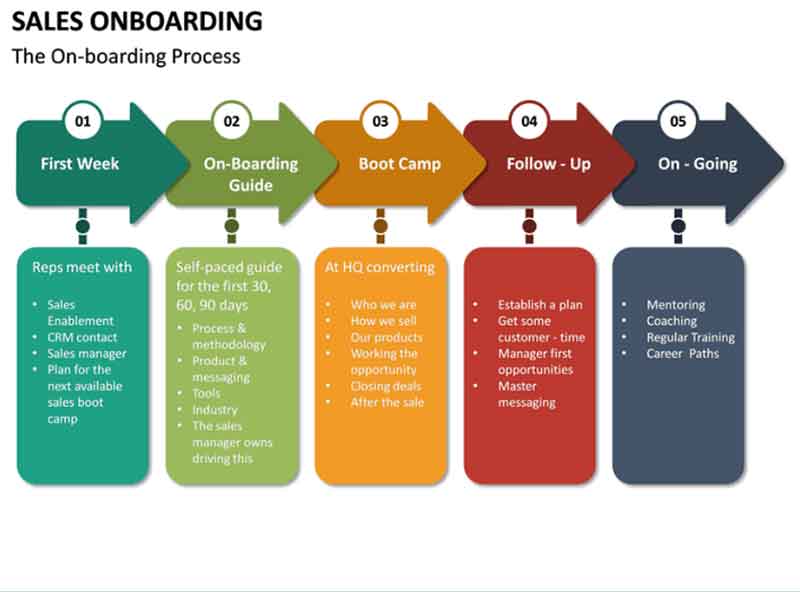By Jessica Day
Enterprise sales is a great trade to be in. It comes with thrilling challenges and gives you plenty of space to play around.
However, with that excitement comes a huge amount of risk, and it can be difficult to get a grasp on where to start.
Enterprise sales take a lot of commitment and hard work. There’s a lot that has to be established before you get started and discuss virtual celebration ideas for a big purchase. For example, you must decide which sales model to use, and it’s crucial to know your industry or niche inside out.
This may seem like more work than it’s worth, which is why this guide has been created. This will help you comprehend all aspects of enterprise sales and get started on growing your business successfully.
What Are Enterprise Sales?
Before delving into the nitty-gritty of enterprise sales, it’s essential to understand what they are first.
Simply put, enterprise sales (also known as complex sales) are large-scale sales involving big organizations. They include longer sale phases, more decision-makers, and have a greater level of risk compared to traditional, small to midsize business (SMB) sales.
The Main Differences Between Enterprise Sales and SMB Sales
It can be easy to assume that all sales are the same. Using the same methods and selling techniques for every sales pitch can be tempting as it will save you time. But it will cost you sales and money.
There are huge differences between enterprise sales and SMB sales, so they should be approached and executed differently. Because, let’s face it, pitching to a multi-million dollar corporation is quite different from boosting ebay sales.
For instance, the enterprise sales process starts a lot earlier than the SMB process. Enterprise sales commence as soon as you have a rough demo that can be pitched to potential clients.
The SMB sales process can’t start until the product has passed its final testing and is ready to be sold. SMB sales require a physical product to flaunt to potential customers, whereas enterprise sales require a strong salesperson to pitch the idea and secure interest.
SMB sales also require fewer decision-makers than enterprise sales. Due to the risks and high investment in enterprise sales, it requires multiple officials to determine all the details and sign off on a purchase. SMB sales may only require a quick stand up meeting before a final decision is made.

SMB sales, however, typically require one or two decision-makers. This is because the risk of SMB sales is significantly lower than those of enterprise sales, and they tend to be less complex.
Finally, the most significant difference between enterprise sales and SMB sales is the length of their cycles. As mentioned previously, the enterprise sales process involves a long sales cycle and can continue for almost a year (or longer).
The SMB sales process only takes days or a few months to complete. Since the product is complete and ready to be purchased from the outset, all that’s left for potential buyers to do is secure their purchase. On the other hand, enterprise sales take a lot of debating and discussion before a sale can be acquired.
Why Are Enterprise Sales Important for Your Business?
Successful enterprise sales can completely transform your business and its reputation.
It gives you an opportunity to secure business with huge organizations and boost your brand awareness. Let’s say you lock in a purchase from a company like Google or Disney. Not only will this open up a plethora of opportunities with similar companies, but it will also attach a great deal of credibility to your brand.
This can also help you create and develop lasting professional relationships with your regular clients. Once one deal is secured and businesses trust in your product, they’ll be more likely to come to you in the future.
Most importantly, enterprise sales will boost your income after only a few secured purchases. Enterprise sales have a high investment rate, and the pay-off can be great. Once the ball starts rolling, you will continue to grow and attract investors to your business.
Enterprise Sales Models
There are three main types of enterprise sales models:
- Self-service sales
- Transactional sales
- Enterprise sales
It’s essential to examine and fully understand each of these models to ensure you are using the best one for your organization.
Self-Service Sales
This model is typically used by businesses with low-cost products and low customer acquisition costs. As the name suggests, customers research your product and make purchase decisions themselves.
This model requires minimal intervention by the business itself and allows you to focus on growing your business in other ways. Best marketing strategies for small businesses could be the focus of your team, for example, while the sales figures take care of themselves.
Transactional Sales
Transactional sales fall somewhere between self-service sales and enterprise sales.They offer flexibility to deal with a variety of customer types. For instance, they allow customers to make decisions and purchases at their own pace while also giving the option to receive support from the business should they need it.
The number of sales using this model tends to be less than that of self-service sales; however, the price point is typically higher.
This model is ideally suited to mid-level businesses and requires a collaboration between the marketing and sales teams.
Enterprise Sales
This model is often used by businesses that provide more complex products with higher price points.
Enterprise sales usually involve more preparation and work than the previously mentioned models as they come with more significant risks and require the development of long-lasting professional relationships. They also include longer sales cycles and a great deal of business intervention.
Things to Consider
Before we go on to discuss the process of enterprise sales, there are a few things that must be considered.
- Onboarding – will the onboarding process cause stress and unnecessary work for your clients? This needs to be seamless, so ensure your client onboarding best practices are followed.
- Security – will your clients’ data be protected at all times? Do you need to restrict access between teams and/or individuals within the company? Consider this and take appropriate action before the sales process begins.
- Post-purchase support – will your clients have access to 24/7 support? Problems can arise at any time, and there needs to be on-hand support at all times. Can you provide this?
- Proof of return on investment – is this investment valuable for your client? There needs to be evidence of returns from using a specific model, or it won’t be worth it.
- Automation – will your service help clients to save time and cut back on expenses?

These factors must be considered before the enterprise sales process begins. Otherwise, you may be entering a pointless process that will inevitably fail.
The Enterprise Sales Process
Now that all the technicalities are out of the way, let’s look at some of the steps involved in the enterprise process.
Find the Problem
The key to selling anything is to offer a solution to someone’s problem. All businesses have their own struggles and problem areas that need to be addressed.
By understanding what issues your potential clients are facing, you can adapt your sales pitch to convince them that your product and/or service is the solution.
Choose the Right Product
Now that you know what problems need to be tackled, you can determine what product would be best to tackle them.
For example, if a business is stuck in its traditional ways and is finding it difficult to progress to a more digital work environment, you can create a solution to this. You could offer your most advanced digital software or virtual fax services.
Anything that would help the client will work.
Research Your Ideal Customer
There will be nothing more embarrassing than attending a sales pitch with a huge corporation and not knowing anything about them. They don’t want to hear a generic business proposal that doesn’t mention any specific areas of their business.
They will want to know why your product is right for them. And if you can’t show them that, they won’t waste their time or money investing in it.
Customize Your Product
This links in with the previous point. Your research will help you customize your product to suit a specific potential client. A tailored approach is always best and it will show your potential client that you’re serious about working with them.
For instance, let’s say you’re a freelance website designer and you come across a company looking for a new WordPress website to jazz up their brand. Accessing wordpress admin dashboards and creating a demo website that suits their brand image and voice will show them that you care about their business
This will create a level of respect and could be the deciding factor in making a purchase.
Succeeding in Enterprise Sales
Being equipped with the knowledge of what’s involved in the enterprise sales process is one thing. But putting it into practice and being successful will take a lot of demanding work and commitment.
So, before you start the process, be sure to understand why you are doing this and what you have to offer. Determine which model is right for your business and whether enterprise sales is indeed what you’re aiming for.
Consider all necessary factors of the process before any discussions begin to ensure the investment will be worthwhile for your clients.
And remember, no problem is too small. Every issue has a potential solution. You just need to find it and pitch it. So whether your client is experiencing financial logging issues, or having trouble creating their new brand logo, offer them your services.
If you know you’re the best business for the job, don’t let anything stand in your way.
About the Author
 Jessica Day is the Senior Director for Marketing Strategy at Dialpad, a modern business communications and virtual meeting platform that takes every kind of conversation to the next level—turning conversations into opportunities. Jessica is an expert in collaborating with multifunctional teams to execute and optimize marketing efforts, for both company and client campaigns. Here is her LinkedIn.
Jessica Day is the Senior Director for Marketing Strategy at Dialpad, a modern business communications and virtual meeting platform that takes every kind of conversation to the next level—turning conversations into opportunities. Jessica is an expert in collaborating with multifunctional teams to execute and optimize marketing efforts, for both company and client campaigns. Here is her LinkedIn.



































